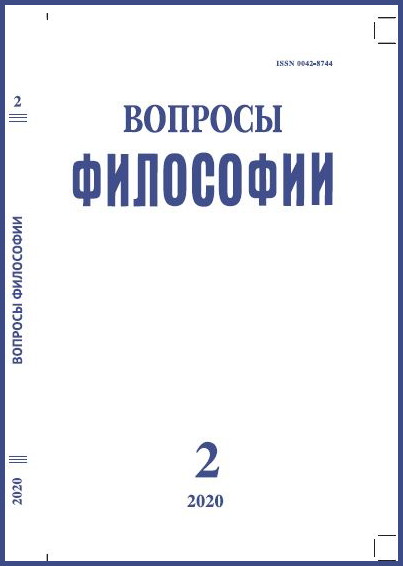The Problem of Correlation of Consciousness and Ego in J.-P. Sartre’s Philosophical Ontology
DOI:
https://doi.org/10.21146/0042-8744-2020-2-177-187Keywords:
consciousness, reflection, pre-reflective Cogito, Ego, subject, unconsciousAbstract
The article analyzes J.-P. Sartre’s ontological concept of consciousness, his doctrine of the transcendence of the Ego and the character of delimitation of reflection levels in various degrees of consciousness. The character of self-determination of consciousness and freedom of human subjectivity is critically revealed in the act of comprehending the world and being in the world as an integral ideal process, the author shows that subjectivity can manifest itself as an integral reflexive process, revealed in all forms of consciousness, both transcendental and transcendent. Consciousness supposes the subject, the Ego as the ability of self-determination, since the subject, its Ego, is the sphere of freedom of self-positioning, including its being and its values, it can function as reflection, encompassing the whole psyche as a whole, including both consciousness and the unconscious. The author reveals the contradictions in the concept of consciousness of Sartre, analyzing the unity of the immanent and transcendent forms of reflection. She gives a comparative analysis in the doctrines of Sartre and Freud regarding the concept of the unconscious and its subjective nature. The notion of Sartre’s transcendental Ego as an external attribute of consciousness and its object, not a subject, is critically analyzed. Sartre deprives transcendental consciousness of subjectivity, and this contradicts the position of self-determination and freedom of consciousness as a condition of its own existence and its status as an absolute. Freedom is considered by the author as an integral reflexive process, encompassing the subject and Ego as a whole in the unity of consciousness and the unconscious, having different degrees of their correlation depending on the maturity of the subject.

